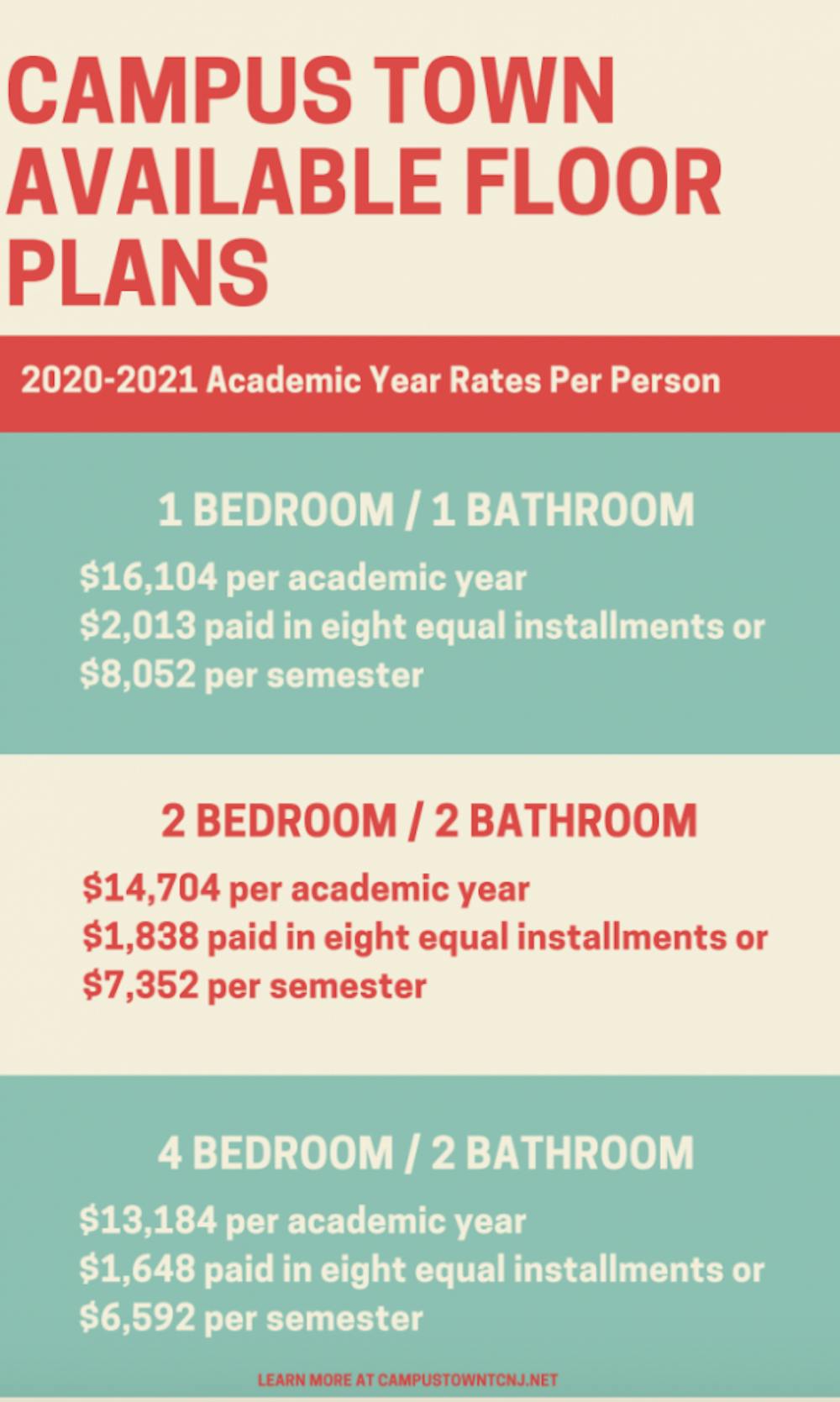By Emmy Liederman
Editor-in-Chief
UPDATE: On April 28, the Campus Town Education Association, Inc. announced in an email that all tenants in "current and in good standing, who do not continue to occupy their units, and who return their keys to Campus Town management no later than May 20th" will receive a $500 refund.
As coronavirus cases escalated in New Jersey and social distancing became a public health mandate, campus life as students, faculty and staff knew it was completely halted. Classes were moved online, students were asked to pack up their dorm rooms and extracurricular activities were cancelled.
But throughout this unusual period of quarantine, one thing hasn’t changed — Campus Town apartments are still accessible, and residents are still required to pay their rent.
“I started a petition after talking with my roommates from Campus Town and realizing we were all feeling the same way, angry and confused,” said Kayla Duria, a junior international studies major. “It just doesn’t seem fair that TCNJ is refunding students for room and board but Campus Town, which is directly linked to TCNJ, isn’t doing anything.”
Confusion and anxiety have become a tense reality for residents and representatives at The PRC Group, the company that owns Campus Town property. Residents have taken to social media to advocate for a 50 percent rent refund, while the company pushes back amidst its obligations to utility bills, maintenance overheads and land lease payments to the College.
Although residents argue that refunds are an obvious solution, Greg Lentine, the vice president of The PRC Group, says that it is just not that simple.
“There is no money available for a refund,” he said. “Residents pay us rent, we get that money and we pay other people. We pay for our ground rent, taxes, gas, water, electric, maintenance, landscaping and insurance. Our venders are begging us to pay them because they have to keep their people working.”
Many students have been frustrated with PRC’s lack of transparency, claiming that the company has intentionally ignored emails and phone calls.
“There’s been a real lack of communication from (Campus Town) management. There’s a blatant refusal to communicate with students or follow-up with parents via phone,” said Breeda Bennett-Jones, a junior communication studies major.
Although Lentine’s claims that Campus Town’s layout already lends itself to social distancing much more than a typical dorm would, many residents do not feel safe, stressing that continuing to live in their apartment during the coronavirus pandemic would put them at a greater risk. There are common study areas and multi-unit apartments with shared bathrooms.
“They seemed to not consider rooming with up to four students in one apartment isn’t an optimal environment to self-isolate or practice social distancing,” said Bennett-Jones.
Lentine stressed that although the complex is located on campus, it is a private company that pays a ground lease of $400,000 each year to the College. Only renting out space to students, faculty and staff is outlined in their lease agreement. He added that reimbursement from the College would make giving money back to residents more feasible.

“We don’t have a state to go to and say ‘you’ve got to make up the difference’,” he said. “We’re just a regular landlord. Move the building two miles away, and most people wouldn’t be confused at that point. Every expense we had when the building was fully occupied to now is still in place.”
As of April 27, only 202 out of 614 residents returned their apartment keys, according to Lentine, which may suggest that many residents are still living in the complex.
“(President Kathryn Foster) has spoken directly with the management of Campus Town about this issue,” said Luke Sacks, the College’s Head Media Relations Officers. “She has made it clear what the college's refund policy is and encouraged them to make accommodations for their student residents. They told her they are currently working on a plan. She will continue to press this point with them, but ultimately the final decision is theirs.”
Although Campus Town has issued three emails updating students on the policy, many residents agree that there has not been enough transparency.
“My mom and I sent emails and there was no response, however when I emailed about moving out they responded, demonstrating how they are unwilling to answer to the concerns families have,” said Alexa Garcia, a senior special education and psychology dual major. “It’s pretty obvious that they don’t care.”
“Students are not asking to be refunded the whole payment, but we are asking for some money back and compassion during this time,” said Garcia.
Although the situation is complicated, Lentine says that PRC has been trying its best to help students out by communicating with the College and discussing a plan for offering residents credit. He said that more information will be emailed to residents as soon as possible.







